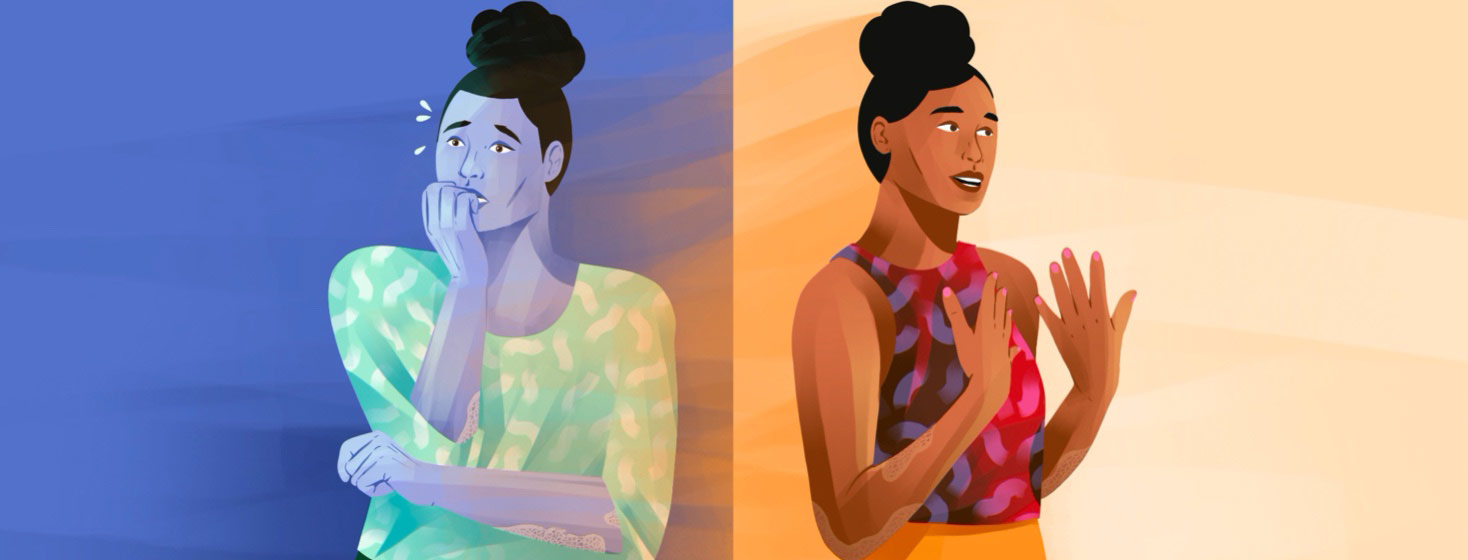What Should You Do if You Have Fears of Psoriatic Disease?
According to the National Psoriasis Foundation, 30% of people who have psoriasis will also go on to develop psoriatic arthritis. I'll be honest with you, I've prayed I wouldn't be a part of that 30%. I prayed that somehow my disease would stop at just psoriasis.
The worries that come with psoriasis progression
Unfortunately for the last 2 months, my joints have been aching and feeling stiff, particularly the fingers in my right hand and my right knees, all symptoms of psoriatic disease.
Sadness comes over me as I think about the future of my health and what it means if I now have psoriatic arthritis. What am I worried about? Well, let me break it down for you.
- The struggles of choosing a rheumatologist
- Additional expenses partnered with managing time away from work
- More medication that may or may not work
- People thinking I'm faking my pain for attention
- No one wanting to date me because I'm "sickly"
- My conditioning worsening and not being able to do the things I love to
I'm tearing up as I type this. I keep thinking that maybe if I ignore the pain it will somehow go away and will be one less thing I have to worry about.
What should you do if you have these fears?
Then I think what would I tell a friend who came to me and revealed they had these symptoms? I wouldn't tell them to simply ignore it, so why am I not being a good friend to myself?
I know ignoring the swelling in my joints is not the solution and in the end, will be a huge injustice to my health. If you think you may be showing signs of psoriatic disease here are the steps you should take:
Don't panic
I know you're probably thinking: how can she tell me not to panic after all she just said in the very beginning? At this moment I'm not speaking to you as a patient, I'm speaking to you as an advocate.
I'm telling you what I would want to hear from a friend I was confiding in, and that is you are not alone. And there is plenty of help for you even if your disease progresses.
Start keeping track of your symptoms
When do my joints hurt the most? In the morning, during the day, or at night? Which joints are in pain? How long ago did I first notice the pain? How does the weather or temperature affect my joints?
These are questions your doctor may ask to better assess your condition so be prepared to answer them. If you need more clarity on what you need to keep track of, contact a nurse at your doctor's office and ask what areas of your health you should record.
Make an appointment with your dermatologist
Go visit your dermatologist and inform them of your symptoms. The in-person visit will also allow them to assess your joints visually so they can give a proper diagnosis.
Sometimes dermatologists are able to prescribe medicine that helps both psoriasis and arthritis, which could potentially save you money by not having to visit a rheumatologist.
Your physician can also refer you to a rheumatologist that they know personally, which will take away some of the anxiety of having to look for one yourself.
A new rheumatologist
Whether you find the doctor yourself or you are referred, it's imperative you make an appointment. Before your visit be sure to have all of your health records sent over to your new doctor for them to review prior to the appointment.
Also, create a list of your concerns to take with you and express them to your new doctor. Remember, finding a great doctor can be just as meticulous as finding a spouse.
If you aren't happy with your care provider move on to a different one, you don't have to be stuck with unsatisfactory service.
Connect with others who have psoriatic disease
You need to understand you are not alone, there are other people who were once in your shoes. Find a community of patients who also have psoriatic disease.
Remember, it is important to seek treatment if you are experiencing symptoms of PsA. Earlier diagnoses will help prevent the disease from progressing. If you chose to ignore these symptoms, your disease could have irreversible effects.

Join the conversation